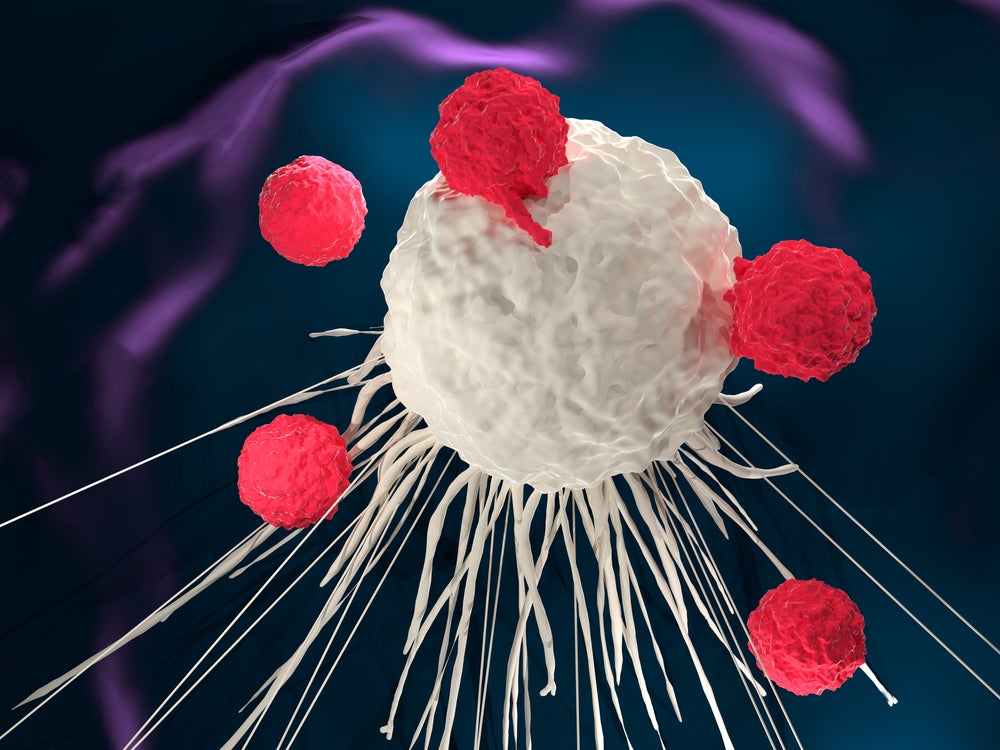
Synthetic biology-focused Twist Bioscience has teamed up with T cell therapy biotech Neogene Therapeutics to develop next-generation personalised T cell therapies, including chimeric antigen receptor T (CAR-T) cell and T cell receptor (TCR) therapies, for cancer.
According to the terms of the agreement, Twist co-founder and CEO Emily Leproust explains, Neogene will leverage Twist’s antibody ‘Library of Libraries’ to create sequences of neo-antigens for future CAR-T therapies.

Discover B2B Marketing That Performs
Combine business intelligence and editorial excellence to reach engaged professionals across 36 leading media platforms.
“In addition, we will provide a synthetic TCR library with a very, very high degree of diversity to identify optimal sequences for [TCR] therapies, for two specific tumour targets,” notes Leproust. “We are thrilled that Neogene has partnered with Twist to leverage our platform in a broad-based way, both to create synthetic sequences as well as a synthetic DNA library for therapeutic discovery, with the ultimate goal of creating a truly personalised cancer therapy.”
In return, Twist will receive technology access fees, as well as milestone and royalty payments on preclinical, clinical and commercial milestones for any therapies resulting from the collaboration.
Neogene will apply its broad expertise on engineering T cell therapies and its proprietary technology to screen and identify specific T cell receptor genes from Twist’s synthetic libraries, explains CEO Carsten Linnemann.
Neogene’s T cell expertise
Founded in 2018, Neogene is a pre-clinical biotech focused on developing pioneering, next-generation personalised T cell therapies for oncology indications. It relies on the cell therapy expertise of its two co-founders, Linnemann and immunologist Dr Ton Schumacher. They previously co-founded T-cell Factory, which was acquired by Kite Pharma in 2015.

US Tariffs are shifting - will you react or anticipate?
Don’t let policy changes catch you off guard. Stay proactive with real-time data and expert analysis.
By GlobalDataFocused on neo-antigens, Neogen’s “proprietary technology platform aims to identify TCR genes with specificity for neo-antigens from a tumour biopsy”, explains Linnemann.
“Since every cancer expresses a unique set of neo-antigens, Neogene’s novel approach delivers a tailored set of TCR genes for each individual patient,” adds Linnemann. “These TCR genes are engineered into patient-derived T cells directing them towards neo-antigens in tumour cells, thereby providing a fully personalised engineered T cell therapy for cancer.”
Overcoming T cell therapy challenges
Currently, only two T cell therapies have been approved – Novartis’s Kymriah and Gilead’s Yescarta. These are both CAR-T therapies and are indicated for very small blood cancer patient populations.
Although these products – and all the others currently in development – are revolutionising cancer treatment, T cell therapies have many limitations. These include “lengthy vein-to-vein times, variable potencies, high production costs and inability to create a product inventory,” according to Linnemann.
However, Linnemann believes synthetic biology tools, like those offered by Twist, have “the potential to further reduce timelines and costs of engineered cell therapies”.
In addition, the promise of T cell therapies in blood cancers has not been repeated for solid tumours, where there remains a huge unmet need. But, Linnemann argues, “synthetic gene libraries can provide a novel tool for the rapid discovery of TCR leads”, therefore, expediting the development of TCR therapies for solid tumours.
Leproust agrees, writing in a statement: “Putting our platforms together, we believe we will be able to expedite the identification and genetic engineering of TCR genes to create personalized T cell therapies for cancer, bringing new hope to address the current limitations of treatments available today.”



